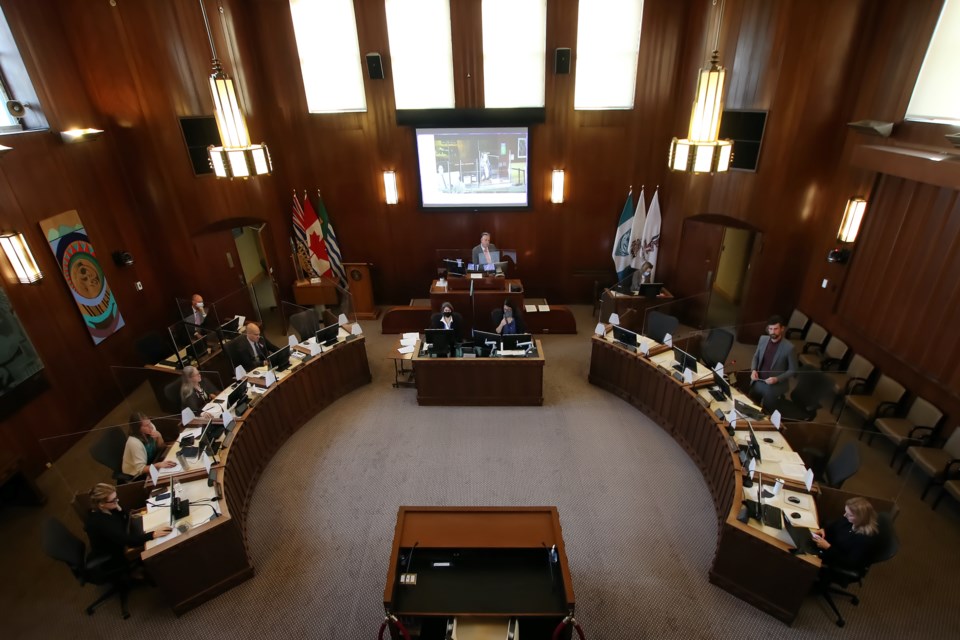Coun. Michael Wiebe said he was “shocked” by the exclusion of several council-directed initiatives that would not be funded if council were to keep taxes at five per cent or lower in 2022.
“It’s everything we’re looking for — it’s helping the opioid overdose crisis, it’s helping the climate emergency, it’s things we have told the public we’re going to do and now looks like we’re not doing,” Wiebe told staff. “So I’m really nervous about the commitments this council’s made and then not being included in the five per cent [tax scenario].”
The Green Party councillor was reacting to a presentation from members of the city’s finance team that provided details of what would be cut or not funded under tax hike scenarios of five per cent, four per cent and three per cent.
For the past two years, council has directed staff to formulate a budget that requires no more than a five per cent property tax hike — a challenge for a city during a pandemic and whose staff revealed in July that expenses were growing faster than revenues.
City manager Paul Mochrie reiterated that challenge Tuesday in explaining the difficulty to keep taxes low while finding ways to support council’s goals, many of which relate to the overdose crisis, climate change, equity and housing.
“We appreciate the difficulty with this — that there are a whole number of investments that this council is looking to make that are not in the five per cent scenario,” Mochrie said. “We’re just working with the parameters that we’ve been given.”
Staff made it clear that a “status quo” budget covering increased costs of doing business in 2022, with no new investments and no reductions in operating costs, would require a much higher tax increase than five per cent.
An accompanying spreadsheet to staff’s presentation featured a list of initiatives not included in the five per cent scenario, including:
• Manager of environment and sustainability at the park board to oversee climate emergency work ($139,000).
• Permanent funding for an “overdose outreach captain” position with Vancouver Fire and Rescue Services ($152,008).
• New full-time position to meet demand of the city’s “evolving Indigenous-related work,” including implementing the UN Declaration on the Rights of Indigenous Peoples and maintaining relationships with the Musqueam, Squamish and Tsleil-Waututh nations ($200,000).
• Implementation of “early start actions” related to the Missing and Murdered Indigenous Women and Girls and reconciliation efforts ($300,000).
• Street cleaning programs in Downtown Eastside, downtown core, Chinatown and surrounding areas ($672,088).
• The hiring of 16 full-time park rangers over the next two years, with budget cost estimated for 2022 at $986,700.
• Vancouver and Fire Rescue Services’ “growth plan” in 2021 for 30 positions at $3.3 million was not filled. The ask this year is $3.6 million to fill 28 positions.
Colin Knight, the city’s director of city-wide financial planning and analysis, told council the preliminary numbers to keep a tax hike under five per cent requires $45 million in “budget mitigations, savings, efficiencies and deferrals of initiatives.”
At the same time, Knight added, city staff has set aside $5.5 million for council to decide what priority initiatives it should fund in the five per cent tax hike scenario. The four and three per cent scenarios would require layoffs, he said.
Managers of each city department, including police and fire, will present their budget requests to council Dec. 1. Council is expected to vote on the 2022 budget at its Dec. 7 meeting.
@Howellings



